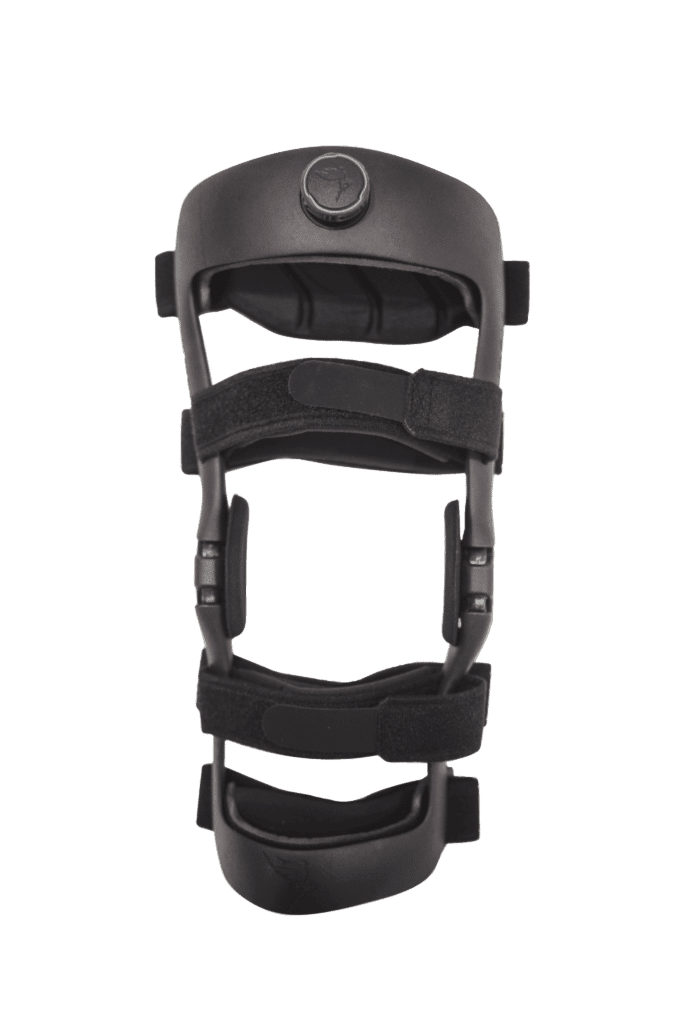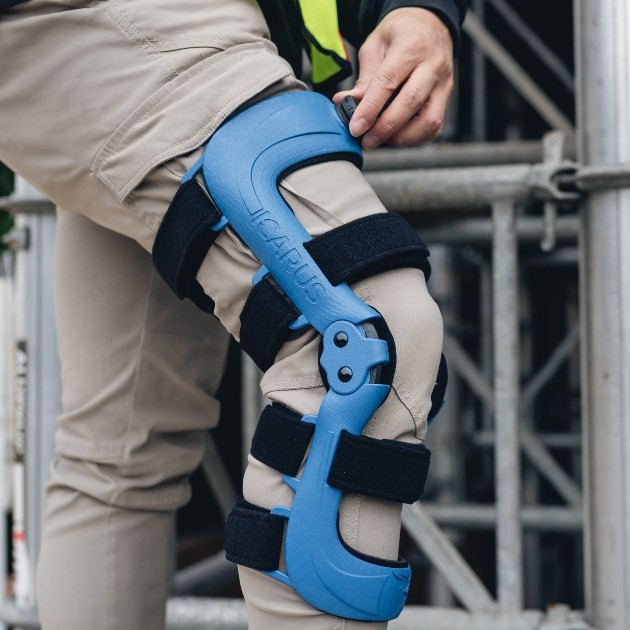If you run or participate in any athletic activity, you’ve probably dealt with a knee injury before. In fact, recent statistics estimate that a whopping 50 percent of regular runners are hurt each year. Runners who have sustained a recent knee injury or experience discomfort when running will likely benefit from wearing a knee brace to support healing or protect against another injury. You can also benefit from running with a knee brace even if you are not currently injured or experiencing pain.
It’s commonly understood that running with a knee brace can help to heal an injured knee and alleviate pain. However, many people are unaware of a knee brace’s preventative benefits. Depending on an individual’s risk factors, wearing a knee brace for running may be beneficial to protect the knees and prevent injuries from occurring. In this article, we will discuss the pros of using a knee brace while running for those who are injured, recovering, or seeking prevention.
Should You Be Running With a Knee Brace?
Knee braces provide stability and structural support to the ligaments, muscles, tendons, and cartilage that comprise the knee joint. The knee is the largest and most complex joint in the human body. Because of its significant role in mobility, the knee endures much wear and tear over the course of a lifetime and is highly susceptible to injury. Whether or not you’ve had a knee injury in the past, running with a knee brace can be a smart option. The benefits of using a knee brace for running include;
- Promoting healing for existing knee injuries
- Relief of knee pain and inflammation
- Physical support for the knee joint
- Protection against further damage
In the next few sections, we will elaborate on these benefits further.
Healing An Existing Knee Injury
You should be running with a knee brace if you previously sustained a knee injury. However, you are recommended to abstain from physical activity immediately after injuring your knee. Once this period of abstinence is over, you will eventually need to re-engage your knees to heal correctly and get back to full activity.
Engaging your knees after an injury helps strengthen the joint muscles and improve any flexibility or mobility that may have been lost. By wearing a knee brace, you can ensure that your knee stays protected while simultaneously strengthening and stretching the parts of your leg and knee to increase your chances of a full recovery.
Providing Pain Relief
Dealing with knee pain can significantly impact your ability to live life as you usually would. In addition to the discomfort, knee pain can leave you immobile and incapable of carrying out everyday activities like cooking, grocery shopping, and even work.
Knee braces reduce pain by shifting your weight off the most damaged part of your knee. They also help to reduce swelling and prevent ligament or meniscus tears from worsening. The alleviation from pain helps injured individuals get around easier and walk further than they can without a knee brace.
Protecting Against Damage
As we briefly mentioned, knee braces offer preventative health benefits to uninjured individuals. Running with a knee brace reduces the shock on your knees and stabilizes the knee joint in a way that protects against strains, tears, and dislocations.
It’s wise for regular runners to use a knee brace to minimize the compounding wear and tear running has on the knees. Using a knee brace for running can also improve your form such that you run more efficiently and are less vulnerable to injury.
Do I need a Knee Brace?
Is a knee brace right for you? The easy answer is yes if you recently sustained a knee injury. However, uninjured runners may also benefit from wearing a knee brace depending on the following risk factors:
- Age
- Weight
- Medical History
- Intensity/Duration
- Running Surface
Age
As we age, our bodies naturally weaken and become more susceptible to injury. After the age of 40, our muscle strength starts to decline. As noted earlier, muscle weakness leads to excess stress on the knee joints and less stability. If you are a runner over the age of 40, consider using a knee brace to help minimize potential damage to your knees so you can continue running well into your 50s and 60s.
Weight
The more you weigh, the more force you exert on your knees while running, causing them to work harder to maintain stability. Runners with a Body Mass Index (BMI) of 25 or above (which indicates they are slightly overweight or obese) should consider running with a knee brace to help absorb any additional shock placed on their knees.
Medical History
Your medical history is essential when deciding if you should wear a knee brace for running. Certain health conditions can make you vulnerable to a knee injury. For example, runners who have arthritis have an increased risk of damaging their knees. If you run regularly and suffer from a health condition, talk to your doctor about how it may impact your knee health.
Intensity/Duration
A light ten-minute jog will impact your knees significantly less than an hour of high-intensity sprinting. An awareness of the strain you are Runners who run long distances or engage in high-intensity running exercises should consider using a knee brace to protect against injury.
Running Surface
The surface that you run or exercise on is directly correlated to the amount of shock your knees endure. Hard surfaces like concrete are less forgiving because they don’t absorb any impact that travels through your legs and knees. A rubber track, for example, typically places less stress on the knees as each stride is slightly cushioned. A knee brace is ideal for runners who find themselves facing hard surfaces or uneven terrains often.
Takeaway
Whether you are injured or not, a knee brace can provide much-needed protection and support to your knees while running. Uninjured runners should consider the risk factors important for knee health, such as age, weight, and medical history. If you believe you have a higher risk of suffering a knee injury, consult your doctor on the benefits of wearing a knee brace and if it’s a good choice for you.
Are you already interested in a custom-fit knee brace? Consider our industry-leading Ascender knee brace. Our team is happy to discuss the Ascender with you further and determine if we are a good fit for you.

